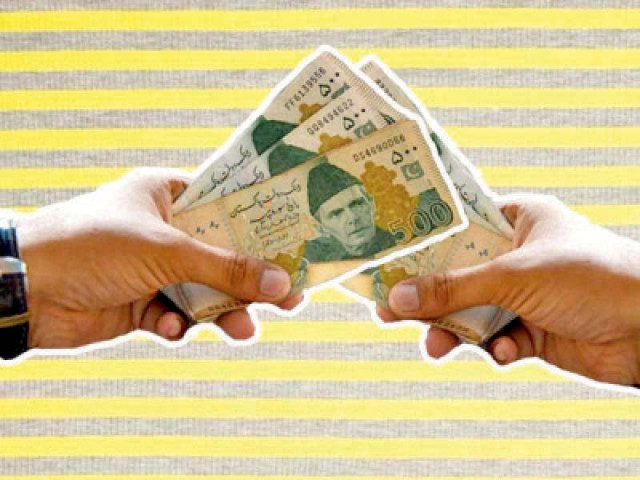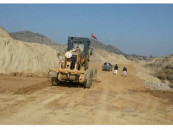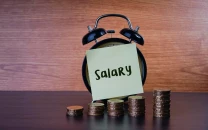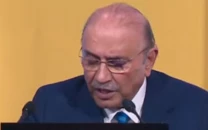Inflation hits its highest in 13 years
CPI clocks in at 21.3% due to a steep rise in prices of energy, food groups

In an alarming development, Pakistan’s inflation, as measured by the Consumer Price Index (CPI), broke a 13-year record and skyrocketed to 21.3% in June due to a steep rise in prices of energy and food groups amid chances of a further surge in petroleum, electricity and gas tariffs under the International Monetary Fund (IMF) conditions.
The fresh inflation reading issued by the Pakistan Bureau of Statistics (PBS) on Friday has also augmented the prospects of a further rise in interest rates in the upcoming monetary policy.
The inflation rate swirled to 21.3% in June over a year- the highest pace in over 13 years. Last time, in February 2009, the inflation had been recorded at slightly over 21%.
The pace of increase in the prices beats the expectations of the finance ministry that had just two days ago given a 14.5% to 15.5% inflation range. The markets had projected close to 19% inflation in June due to the government’s decision to increase the prices of petroleum products, electricity and steep currency devaluation.
The monthly inflation rate jumped 6.3% in June over May –probably the highest increase in a single month in the history of Pakistan.
The inflation reading suggests that the government will have to review its strategy to gradually succumb to all the IMF’s demands. The government has not been able to regain any lost ground from the IMF and is giving one after another shocks to the people.
The core inflation, calculated after excluding the volatile energy and food prices, also spiralled to 11.5% last month in urban areas and 13.6% in rural areas, signalling price growth is gathering pace across most categories of goods and services.
Another round of increase in fuel prices is expected next month under the IMF condition to impose Rs10 per litre levy on petrol and Rs5 on diesel. The Minister of State for Petroleum Dr Musaddiq Malik also hinted at a 40% to 45% increase in the gas prices from this month.The PBS reported that the CPI-based inflation rate increased to 19.8% in urban areas –a jump of 7.4% in a single month. In villages and towns, the inflation rate skyrocketed to 23.6% -also an increase of 7.7% in just one month. The 11.5% core inflation in urban areas was the highest pace since October 2012.
Read Inflation may accelerate to 15.5%
The constant double-digit inflation in the country has eroded the people’s purchasing power and the decision to slap more taxes on their salaries may now force them to reprioritise their expenses from health and education to meet essential food needs.
The overall price growth remained double-digit due to an increase in the rates of food items. The pace of food inflation swelled to 24% from 15.5% a month ago in cities and to 27% in villages and towns last month, according to the PBS.The prices of both non-perishable and perishable food products increased significantly last month. The food group prices surged over 26% in June compared to the same month a year ago. Prices of perishable food items increased 36%, according to the PBS.
The low-middle and middle-income groups have started crumbling under an unbearable increase in the cost of living.
The State Bank of Pakistan had increased the key policy rate to 13.75% to curb inflation and correct external sector imbalances. The central bank has so far failed to contain inflation despite almost doubling the interest rates.
The prices of all essential products seemed to slip out of the control of the authorities, particularly crucial kitchen items like edible oil.
The prices of onions jumped 124% last month compared to a year ago, followed by a 121% increase in the rates of potatoes and 82% for various types of ghee and cooking oil, according to PBS.
The prices of pulses increased nearly 58%, chicken by half and meat and vegetable by 40% last month over a year ago.
The rates of petrol were almost double in June over a year ago, followed by 61% growth in liquefied hydrocarbons and 35% in prices of electricity.
Average inflation during the last fiscal year remained at 12.2% -- far higher than the last government’s target of 8% and the initial projection made by the SBP.The unchecked inflation puts a question mark over the central bank’s ability to contain inflation. It should also push the government to review its strategy and try to strike a balance between accepting the IMF’s demands and the people's ability to absorb the price shocks.



















COMMENTS
Comments are moderated and generally will be posted if they are on-topic and not abusive.
For more information, please see our Comments FAQ